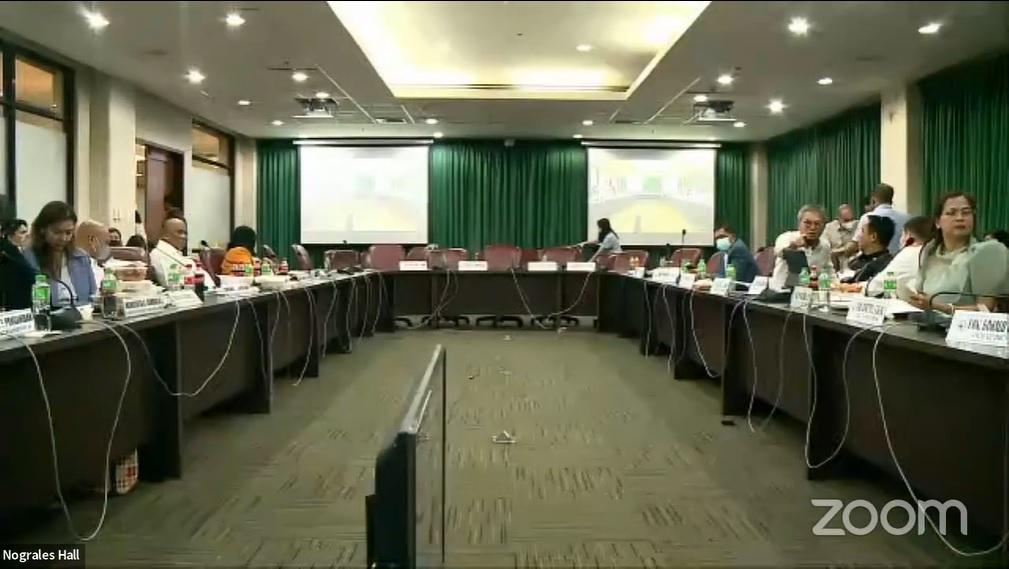House on track to pass 2023 budget bill by October 1 —Co

The House of Representatives (HOR) is on schedule to pass the proposed P5.268-trillion national budget bill next month, the lower chamber’s appropriations panel chair said Tuesday.
During a press briefing, House Committee on Appropriations chairperson and Ako Bicol Party-list Representative Elizaldy Co said that as of Monday, 14 out of 34 agencies have briefed the HOR concerning their respective budget proposals.
Co said that with two more weeks of budget briefings, “we are still on track with our target date to pass the GAB (General Appropriations Bill) by October 1, 2022.”
The House leader said that on September 16, the lower chamber is expected to finish the budget hearings and head on to plenary debates by September 21.
House Speaker Martin Romualdez earlier told Senate leaders that the HOR will transmit the 2023 national budget bill to the upper chamber by early October, according to Senator Juan Edgardo Angara.
The proposed national budget next year, the Marcos administration’s full-year spending program, was submitted to the HOR on August 22, 2023.
“We can really see how the appropriations committee and all the members of the Congress are working hard to stick to the timeline without sacrificing the quality of the 2023 budget deliberations. Even before the budget hearings commenced, everyone took their tasks seriously by having clear communication lines with the agencies,” Co said.
Among the agencies that briefed the Committee on Appropriations were the Development Budget Coordination Committee (DBCC), Department of Energy (DOE), Department of the Interior and Local Government (DILG), Department of Environment and Natural Resources, Department of Tourism, and the Office of the President.
The House appropriations panel is conducting a hearing for the proposed budget of the Department of Social Welfare and Development (DSWD) on Tuesday.
Thus far, the discussions revolved around some of the key spending priorities of the 2023 budget, which include the Agriculture and Fisheries Modernization Program and the Total Electrification Program, among others.
Throughout the budget hearings, various issues were raised with the different agencies.
Co said most of the agencies requested for higher budget compared to what the Department of Budget and Management (DBM) submitted under the National Expenditure Program (NEP).
“Bagamat sinuportahan ito ng maraming kongresista, hindi pa clearly identified ang mga programang puwedeng pagkunan ng budget increases,” the House appropriation panel chair said.
(Although many congressmen support this, it is not yet clearly identified what are the programs we can tap for the budget increases.)
He said that the Constitution prohibits the changing of the P5.268-trillion budget ceiling set by the DBM.
“Kaya’t kung tataasan ang halaga ng isang budget item, kailangan bawasan ang isa pang budget item. Gayunpaman, hindi rin naman ganu'n kataas ang budget utilization rate ng ilang ahensya,” Co said.
(Thus, if the budget of an item is increased, another budget item will be reduced. However, the utilization rate of several agencies is not that high.)
“The absorptive capacity of the agencies is a perennial challenge kaya dapat mapagtuunan talaga ng pansin ang pagbabantay sa execution ng budget (that’s why the execution of the budget should be tightly monitored)," he added.
The House leader also cited devolution as another “recurring issue,” particularly in DILG and DENR as “lawmakers have shown concern regarding the capacity of LGUs to be able to absorb the devolved functions from national agencies, especially with a smaller NTA (National Tax Allotment) from last year.”
Co said lawmakers also observed that digitalization is a common theme in the agencies' plans to improve their overall operations.
“That said, Congress still stands by its goal for the swift passage of the GAB to allow sufficient time for it to exercise its oversight functions. This way, we can ensure that the agencies will not only use their respective budgets for programs in alignment with the new administration’s eight-point socioeconomic agenda but will also be genuinely felt by the Filipino people who will benefit from their programs,” he said.
“Rest assured that we will continue to work harder to achieve these goals without compromising producing a high-quality national budget aimed for prosperity,” Co added. —KG, GMA News




